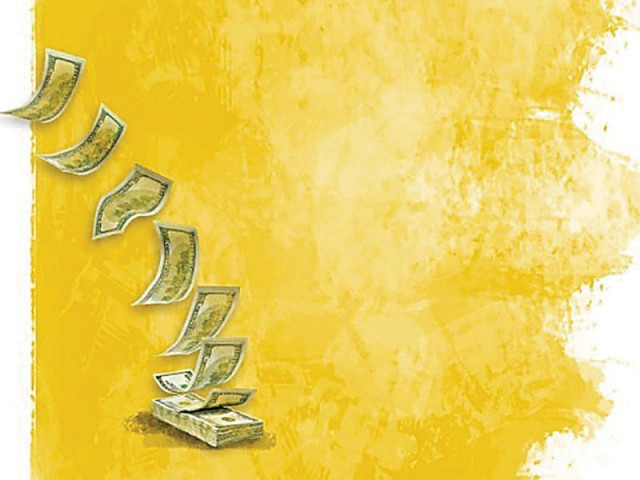Dampening prospect: Growth expected to decelerate, says WB report
Security situation, energy crisis as major reasons of hindrance to economy.

Independent economists think that half a percentage less or more growth would not have much impact on the country’s overall socio-economic conditions. STOCK IMAGE
Despite subsiding simmering political tensions, growth in Pakistan is expected to decelerate due to the persistent energy crisis and troubled security situation, which would result in missing the annual national output target of 5.1%, says a new report of the World Bank (WB).
The Global Economic Prospect report states that the weakening support for economic reforms will also dampen the prospects of growth in Pakistan. The WB’s report partly supports the government argument that blamed that Pakistan Tahreek-e-Insaf’s agitation disturbed the momentum of economic recovery.
The Washington-based lending agency stated that political tension in Pakistan seemed to be settling down, which should help improve prospects of growth. “However, the pace of this recovery should remain slow on account of persistent energy shortages and a troubled security situation”, it adds.
The WB’s assessment of lower growth is in line with the evaluation of Finance Minister Ishaq Dar. In his latest interaction with media, Dar had stated that due to the prevailing security situation, Gross Domestic Product (GDP) growth rate may not be achieved. But he appeared optimistic and said that the rate will be closer to the annual target of 5.1%.
The only difference between the WB analysis and Dar’s reasoning was that the finance minister was attributing the losses in national output to the military offensive against terrorists and its consequential implications on growth. But the WB termed energy shortages equally damaging for the growth.
The WB has projected that in fiscal year 2014-15, the growth rate could be around 4.7%. According to another report, Economic and Social Survey of Asia and Pacific of the UNESCAP, Pakistan’s macroeconomic fundamentals remain fragile due to poor security conditions, political instability and low fixed investment constrained by a shortage of domestic savings.
Independent economists think that half a percentage less or more growth would not have much impact on the country’s overall socio-economic conditions. They argue that the country needs a consistent growth rate of over 7% to lift millions of people out of the poverty net and create jobs for thousands of people entering the market each year.
Economists like Dr Nadeemul Haq, a former employee of the IMF, argue that the government should focus more on investment and economic reforms and talk less about the tax-to-GDP ratio. However, investment is the word that one rarely listens from the mouth of the finance minister.
The WB has cautioned that disappointment over non-resolution of structural issues could weaken confidence, depress investment, trigger a reappraisal of growth prospects and reversal of investor sentiment, and could derail financing under the IMF-supported programme.
The report stated that preferential market access to the European Union could boost export performance but the continued energy supply shortages hamper growth of exporting companies. It adds that with power generation unlikely to keep pace with growing demand in the region, shortages are expected to persist in the near term, including in Bangladesh, India, Nepal, and Pakistan.
In yet another adverse development, the WB stated that share of manufacturing in the total economic output of Pakistan has trended down to near the bottom of the range for major developing or emerging market economies.
On the issue of tax reforms, the WB stated that in Pakistan, personal and corporate income tax rates are very complex, having multiple rate structures. In Pakistan, only 3.1 million people possess national tax numbers, with actual filers less than 900,000.
The WB states that Pakistan is implementing comprehensive and multipronged reforms spanning tax administration, regulatory reforms, and governance reforms
Contrary to perception of introducing reforms given to the WB and other multilateral lenders, elements in Federal Board of Revenue (FBR) are hampering attempts to introduce meaningful reforms. Sources said that FBR was creating hurdles for the Tax Reforms Commission constituted to propose alterations.
Published in The Express Tribune, January 16th, 2015.
Like Business on Facebook, follow @TribuneBiz on Twitter to stay informed and join in the conversation.


















COMMENTS
Comments are moderated and generally will be posted if they are on-topic and not abusive.
For more information, please see our Comments FAQ